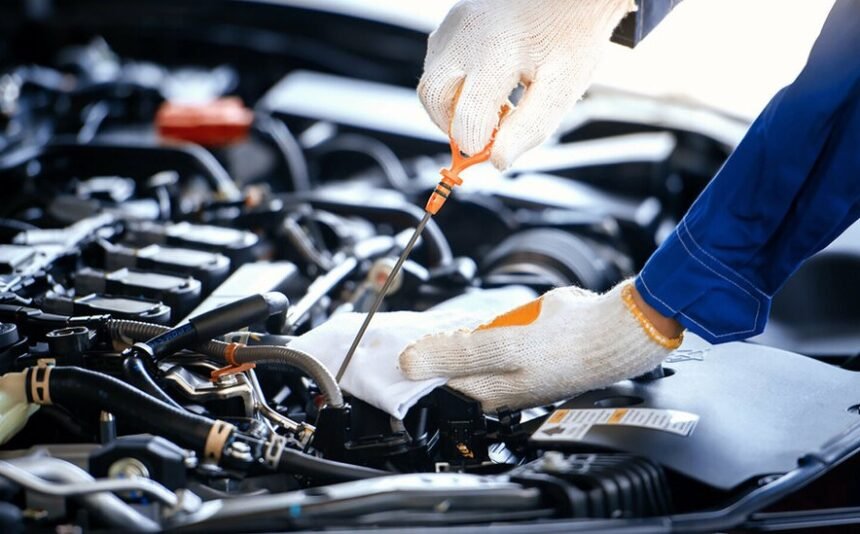Introduction
The engine of your car is its heart; like any important organ, it needs consistent maintenance to operate as it should. Many car owners overlook regular maintenance, sometimes thinking it to be an unneeded cost or hassle. Ignoring planned maintenance, however, can have serious repercussions including expensive repairs, lower engine performance, and sometimes total engine failure. Extending the lifetime of your engine, increasing fuel economy, and guaranteeing flawless operation of your vehicle depend on regular maintenance.
Benefits of Regular Maintenance for Avoiding Major Engine Repairs
The Role of Regular Maintenance
Every manufacturer of an automobile offers a suggested maintenance plan including common tasks such fluid checks, filter replacements, oil changes, and engine component inspections. These services spot and fix little problems before they become more serious. Apart from guaranteed best engine performance, routine maintenance helps to provide a safer driving environment. Find the best remapping company for your engine repairs.
The Importance of Oil Changes
Lubrication of moving parts, friction reduction, and overheating prevention all depend on engine oil. Oil deteriorates with time and gathers dirt and trash, which causes engine components more wear and strain. Frequent oil changes eliminate these pollutants, therefore maintaining the engine in good running condition and correct lubrication. Ignoring oil changes can cause sludge to develop, engine temperature to rise, and finally catastrophic engine failure.
Air and Fuel Filter Replacements
Keeping damaging particles and trash out of the engine depends on filters. While the fuel filter keeps impurities from getting to the fuel injectors, the air filter guarantees that pure air is combined with fuel for effective combustion. Reduced fuel efficiency, poor engine performance, and possible damage to important engine components can all follow from clogged or unclean filters. Changing filters at prescribed intervals helps keep engine efficiency and air-fuel mix correct.
Cooling System Maintenance
The cooling system controls engine temperature with coolant, therefore preventing overheating of the engine. Coolant can contaminate or lose its efficacy over time, which would raise engine temperature and maybe cause overheating. By flushing the cooling system and restocking the coolant at regular intervals, one can help to prevent corrosion, leaks, and expensive repairs brought on by overheating. A well-maintained cooling system guarantees that the engine runs at ideal temperature, lowering the risk of significant damage.
Spark Plug and Ignition System Care
Igniting the air-fuel mixture in the engine cylinders depends on spark plugs in great part. Reduced fuel economy, rough idling, and misfires brought on by worn-out or damaged spark plugs can all result from As needed, routinely checking and replacing spark plugs guarantees effective combustion and smooth engine operation. Furthermore ensuring consistent engine performance and helping to avoid starting problems is maintaining the ignition system, including the ignition coils and wires.
The Impact of Neglecting Maintenance
Ignoring consistent engine maintenance can have a number of major effects. For example, skipping oil changes might cause engine sludge accumulation, which would lower lubrication and raise wear. Ignoring coolant system maintenance can result in overheating, whereby warping of engine components results from and costly repairs from Ignoring warning signals such as strange noises, engine misfires, or lower fuel economy can allow small problems grow into severe, expensive ones.
Financial Benefits of Regular Maintenance
Many car owners refuse to pay for regular maintenance since they consider it as an unnecessary expense. Still, preventive maintenance is far less expensive than handling catastrophic engine repairs or replacements. Repairing or rebuilding an engine costs far more than basic servicing including oil changes, filter replacements, and system inspections. Maintaining maintenance throughout time will help to extend the lifetime of the car and save hundreds of dollars in repair expenses.
Conclusion
Regular engine maintenance is absolutely necessary to ensure the lifetime and durability of your car. Following the manufacturer’s maintenance schedule and fixing minor problems right away will help you to prevent expensive repairs, improve fuel economy, and maintain best engine performance. A well-kept engine results in improved safety, smoother driving, and mental peace of mind. By investing time and effort into preventative maintenance now, major engine issues down-stream can be avoided, therefore saving both money and aggravation.







